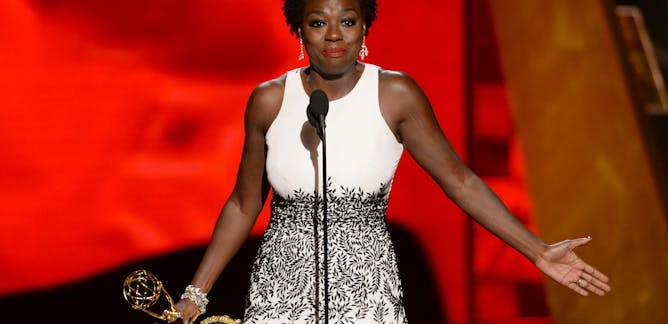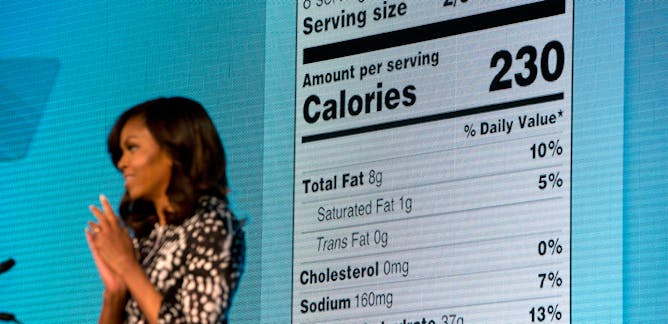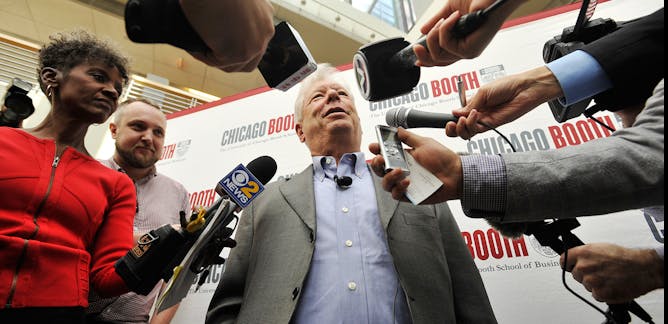| |
|
|
|
|
|
|
| |
|
Editor's note
|
|
We humans love to count. Our salary, our weight, the number of jellybeans there are in a jar – and, of course, the number of times that the Earth has gone around the sun. As the data and math editor, it’s my job to help scholars tell the stories behind the numbers in everyday life. This year, through statistics, graphs and maps, we explored explosive issues, from the rural-urban divide to 4th of July fireworks. As another year ticks by, I also took a look back at some of our infographics from 2017 – and they were diverse. Researchers at Stanford University scoured millions of internet comments to understand why people troll. Andrew Kolodny at Brandeis University used data to explore America’s tragic opioid crisis. Another study checked the resumes of thousands of business leaders to bust a major myth about college dropouts. Read my list of favorite charts to revisit them all. Aviva Rutkin
Speaking of myth busting, behavioral economists have been big in the news this year, particularly after one of their pioneers, Richard Thaler of the University of Chicago, won a Nobel prize. The burgeoning discipline focuses on integrating the way humans actually behave with economics, a field that traditionally assumes people always act rationally. (Did someone say “bitcoin”?) Thaler, Harvard’s Cass Sunstein and others have learned otherwise, and have used these insights to improve government policies to enhance citizens’ welfare, such as by increasing participation in retirement plans or tweaking nutrition labels to make them more effective. And the stories we publish on the topic tend to be among the most interesting ones I work on because
they show, so clearly, how the work of scholars and economists affect our lives and can make them better. They’re also some of the most popular articles I edit. Here’s a handful of stories I published on the topic of behavioral economics this year and why the field matters. Bryan Keogh
|
Aviva Rutkin
Big Data + Applied Mathematics Editor
|

|
Bryan Keogh
Economics + Business Editor
|

|
|
Big Data + Applied Mathematics
|

Where we’ve been in 2017.
rawpixel.com/shutterstock.com
Aviva Rutkin, The Conversation
How do diverse movies fare in the international box office? What time do trolls like to post their comments? We look back on some of this year's most intriguing graphs and maps.
|
|

Jonathan J.B. Mijs, Harvard University
People in some of the most unequal countries in the world think theirs is the paradigm of meritocracy. Can the data help explain this phenomenon?
| |

Jonathan Wai, Duke University; Heiner Rindermann, Chemnitz University of Technology
While the media glamorizes famous college dropouts like Mark Zuckerberg and Bill Gates, the reality is that most successful people in the U.S. went to – and finished – college.
|

Roberto Pedace, Scripps College
An analysis of more than 800 top-grossing films suggests diverse movies struggle in front of international audiences.
| |

John M. Eason, Texas A&M University
The number of prisons in the US swelled between 1970 and 2000, from 511 to nearly 1,663. Here's the story of why one town in Arkansas welcomed a correction facility.
|

Andrew Kolodny, Brandeis University
Your guide to a public health crisis that's likely to get worse.
| |

Justin Cheng, Stanford University; Cristian Danescu-Niculescu-Mizil, Cornell University; Jure Leskovec, Stanford University; Michael Bernstein, Stanford University
You might think that trolling on the internet is done by a small, vocal minority of sociopaths. But what if all trolls aren’t born trolls? What if they are ordinary people like you and me?
|
|
|
Economy + Business
|

Richard Thaler, laureate in economics, receives his Nobel in Stockholm in December.
TT News Agency/Jonas Ekstromer via Reuters
Bryan Keogh, The Conversation
After winning its second Nobel prize, the burgeoning field has demonstrated its importance in economics and power in making government policy more effective.
|
|

Mary Steffel, Northeastern University; Elanor Williams, Indiana University; Ruth Pogacar, University of Cincinnati
Defaults are powerful tools that policymakers and marketers can use to nudge us to make certain choices, whether in our interest or in theirs. How do we ensure they're used responsibly?
| |

Cass Sunstein, Harvard University
Government initiatives to prod people to make better decisions got a lot of attention after Richard Thaler won a Nobel in economics for his working on nudging.
|

Jay L. Zagorsky, The Ohio State University
Richard Thaler won the 2017 Nobel Prize in economics for his groundbreaking work incorporating how humans actually behave into economic thinking.
| |

Jon M Jachimowicz, Columbia University
Dozens of governments have been using the insights from the burgeoning field to 'nudge' citizens in ways that improve their well-being. But some worry Trump might use it for less altruistic ends.
|
|
|
| |
| |
| |
| |
| |
| |
|
|
|
|
|
|
|
|